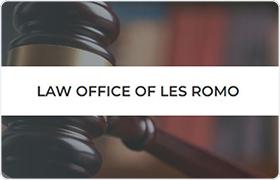Granger Eminent Domain Lawyer, Texas
Sponsored Law Firm
-
 x
x

Click For More Info:
-
Law Office of Les Romo
102 West Morrow Street Suite 202 Georgetown, TX 78627» view mapEstate Law Helping You Understand Your Options
Attorney Les Romo can help protect your interests and resolve your legal issue in the best possible way. Attorney Romo is dedicated to vigorously representing his clients.
800-769-7481
Ashley Marie Croswell
Commercial Real Estate, Eminent Domain, Litigation, Trusts
Status: In Good Standing Licensed: 8 Years
Celeste Frances Adorno
Eminent Domain, Mediation, Civil & Human Rights
Status: In Good Standing Licensed: 37 Years
Christian Scott Brooks
Commercial Real Estate, Eminent Domain, Civil Rights, Property & Casualty
Status: In Good Standing Licensed: 22 Years
Christopher M. Clough
Eminent Domain, Litigation, Industry Specialties, Environmental Law Other
Status: In Good Standing Licensed: 20 Years
Christopher Jake Oddo
Commercial Real Estate, Eminent Domain, Litigation, Environmental Law Other
Status: In Good Standing Licensed: 25 Years
Eric J Taube
Eminent Domain, Labor Law, Franchising, Banking & Finance
Status: In Good Standing Licensed: 41 Years
Luke Joseph Ellis
Commercial Real Estate, Eminent Domain, Real Estate, Litigation
Status: In Good Standing Licensed: 22 Years
Michael M. Barron
Eminent Domain, Real Estate, Litigation, International Other
Status: In Good Standing Licensed: 52 Years
 Les Romo Georgetown, TX
Les Romo Georgetown, TX Practice AreasExpertise
Practice AreasExpertise
